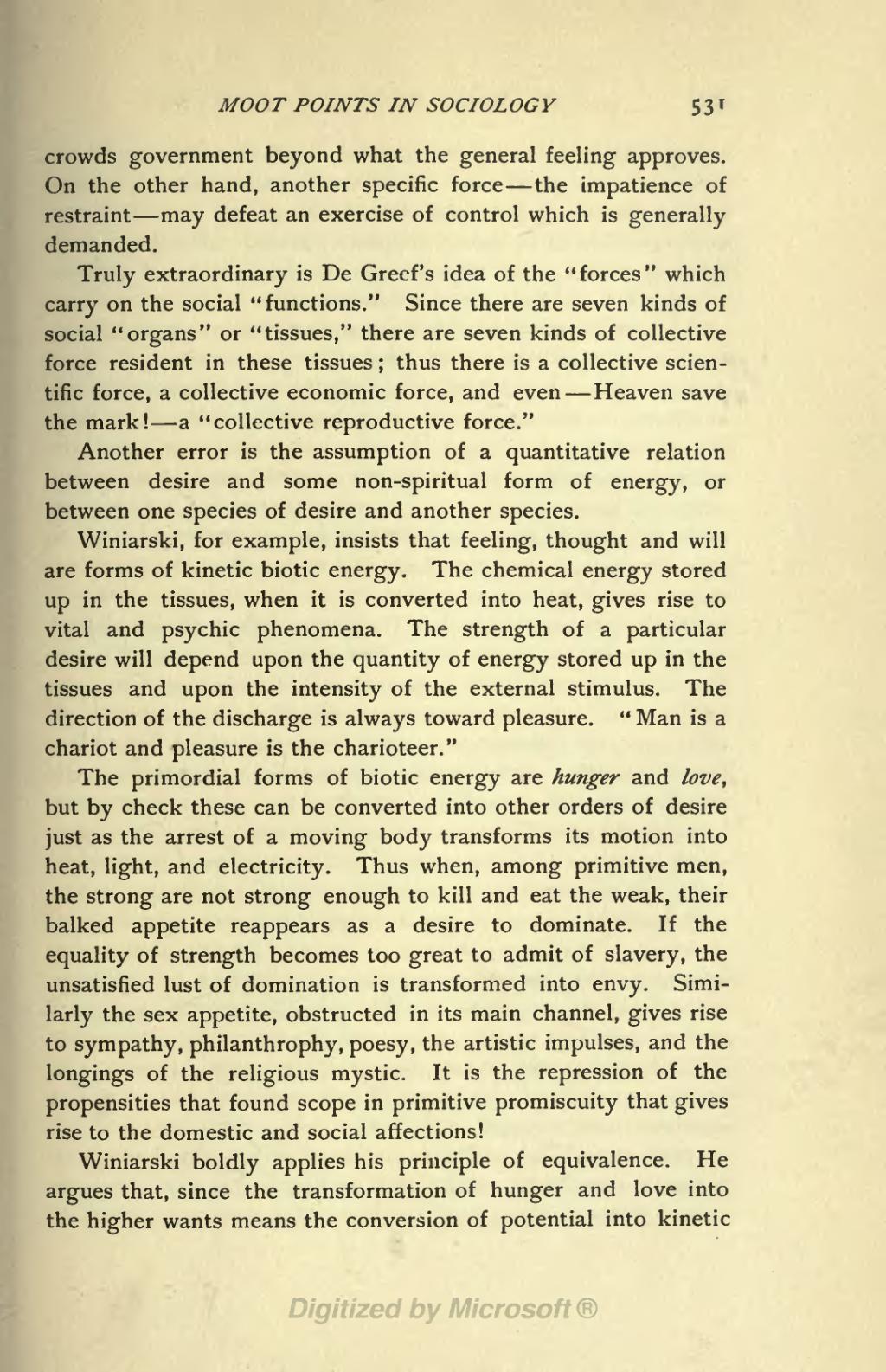MOO T POINTS IN SOCIOL OGY 531
crowds government beyond what the general feeling approves. On the other hand, another specific force the impatience of restraint may defeat an exercise of control which is generally demanded.
Truly extraordinary is De Greefs idea of the "forces" which carry on the social "functions." Since there are seven kinds of social "organs" or "tissues," there are seven kinds of collective force resident in these tissues ; thus there is a collective scien- tific force, a collective economic force, and even Heaven save the mark! a "collective reproductive force."
Another error is the assumption of a quantitative relation between desire and some non-spiritual form of energy, or between one species of desire and another species.
Winiarski, for example, insists that feeling, thought and will are forms of kinetic biotic energy. The chemical energy stored up in the tissues, when it is converted into heat, gives rise to vital and psychic phenomena. The strength of a particular desire will depend upon the quantity of energy stored up in the tissues and upon the intensity of the external stimulus. The direction of the discharge is always toward pleasure. " Man is a chariot and pleasure is the charioteer."
The primordial forms of biotic energy are hunger and love, but by check these can be converted into other orders of desire just as the arrest of a moving body transforms its motion into heat, light, and electricity. Thus when, among primitive men, the strong are not strong enough to kill and eat the weak, their balked appetite reappears as a desire to dominate. If the equality of strength becomes too great to admit of slavery, the unsatisfied lust of domination is transformed into envy. Simi- larly the sex appetite, obstructed in its main channel, gives rise to sympathy, philanthrophy, poesy, the artistic impulses, and the longings of the religious mystic. It is the repression of the propensities that found scope in primitive promiscuity that gives rise to the domestic and social affections!
Winiarski boldly applies his principle of equivalence. He argues that, since the transformation of hunger and love into the higher wants means the conversion of potential into kinetic
